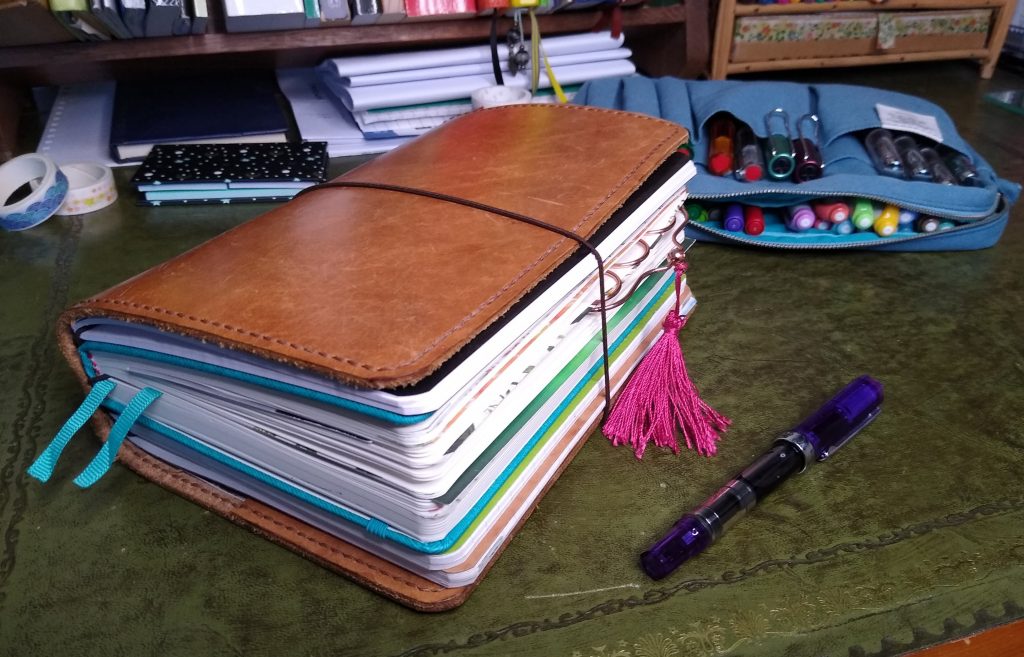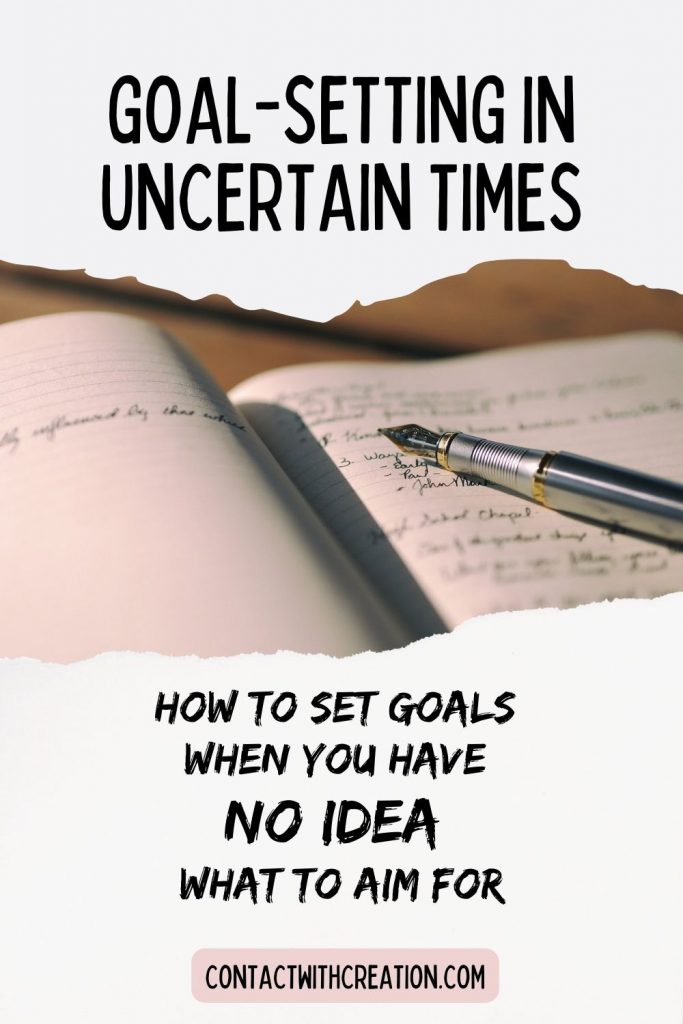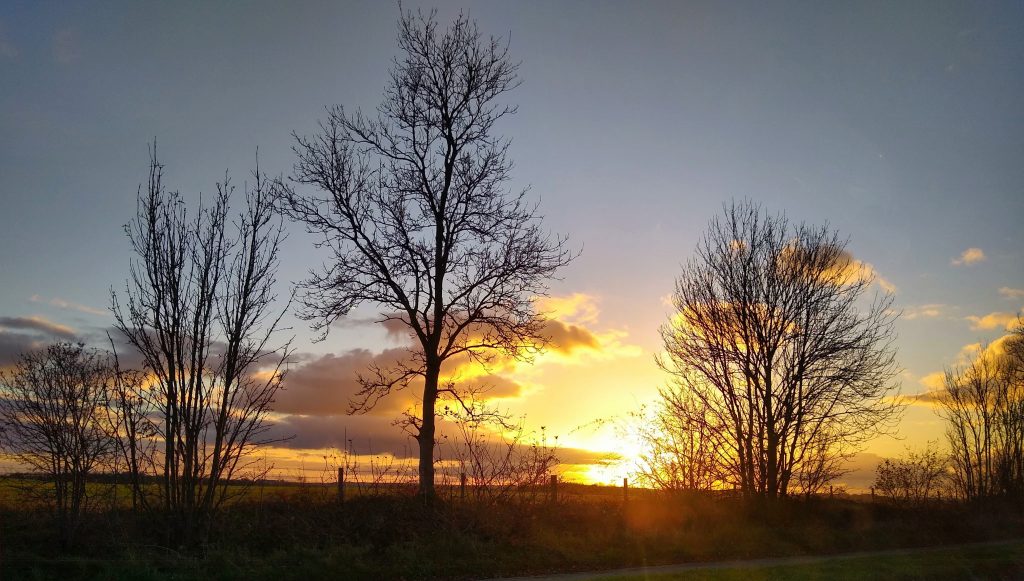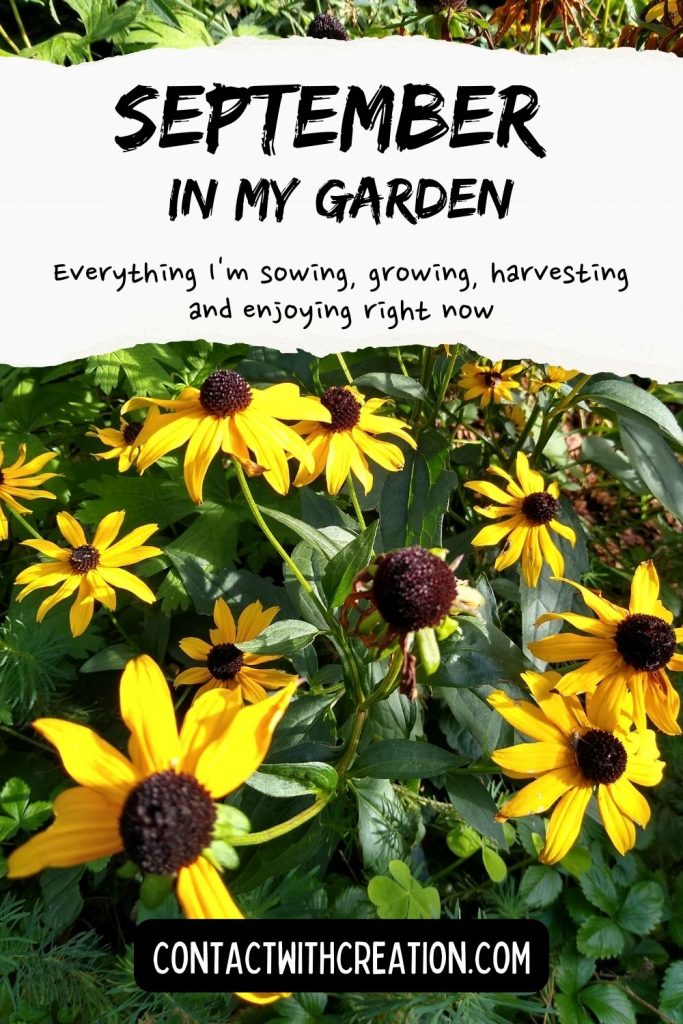Goal-setting can be tricky at any time, but when life throws extra challenges, turmoil and change our way, such uncertain times can leave us feeling helpless and aimless. Sometimes it’s really hard to know what we want from life. And sometimes, we’re just indecisive. But by digging deep and exploring our true values, we can set better foundations for our goals and keep moving forward.
I am not very good at ambition. This is partly down to a strong ‘you can’t take it with you, so you might as well enjoy life’ outlook, and partly down to my low tolerance for hard work as soon as it stops being fulfilling. Life is too short for unfulfilling work! Without a big career goal to aim for, life has often felt a bit like I’m just pootling along, not really sure what I want.
Yet, goals are an important part of living intentionally and making sure I’m not just wasting my time here on earth. So like many people, at the beginning of every year – and any other time I feel like I need some extra direction – I sit down and think about what I’d like to get done in the next twelve months or so.
FINDING MEANINGFUL GOALS
But what should my goals be? What are good goals to have? What’s really worth my time and effort this year?
Lots of people seem to have the same goals, like losing weight, or saving more money, or trying a new hobby, or reading more books. Indeed, there are some foundational goals that benefit us all and set the stage for greater positive change: Gretchen Rubin, in her great book ‘Better Than Before’, identifies them as sleep, movement, eating and drinking right, and decluttering.
But if I chose the same kinds of goals that everyone else is setting, would they really be what I wanted, or would they be arbitrary or meaningless in the end? Would they be distracting my attention from something more meaningful? Something more me?
“Being that our only frame of reference at any given time is what’s happened in the past, we actually have no means to determine what would make us truly happy, as opposed to just feeling ‘saved’ from whatever we disliked about our past experiences.”
Brianna Wiest, 101 Essays That Will Change The Way You Think (or article here)
THE TROUBLE WITH ‘SMART’ GOALS
You’ve probably heard of ‘SMART’ goals before: many goal-setters focus on defining goals which are Specific, Measurable, Achievable, Relevant and Time-bound. If SMART goals suit you and lead you to fulfillment, that’s fine, of course – all power to you! – and you could probably stop reading right here if you want.
But a few years ago I figured out SMART goals are definitely not for me. Maybe occasionally, but not on the whole.
“As soon as you focus on a goal, you’ve given yourself something to fail at and you’ve closed yourself off from other opportunities. Instead, improve your systems; improve your odds.”
Scott Adams (from The Tim Ferris Show #106)
The thing is, things change, and we can never know what’s ahead. What if I’m pouring so much energy into exercising more that I miss an exciting opportunity? Or if I become so set on buying that house in London that I never quite realise I’d really rather move to Canterbury? What if I chase that promotion so hard I miss a great job opportunity in a different area? What if the SMART goals become a distraction from life as it arises? SMART goals don’t seem to allow for flexibility, or change, or life getting in the way.
And what if there are many different ways to live my life joyfully? How can I know which one to go for?
“Accomplishing goals is not success. How much you expand in the process is.”
Brianna Wiest, 101 Essays That Will Change The Way You Think
THE JOURNEY MATTERS MORE THAN THE DESTINATION
You see, I’m a big believer that what really counts is being on the right road. While you’re on the road, you’re learning and growing, and you’re taking in the sights. If you’re focused on a far-off destination, you’re always thinking about the future and you don’t get to fully appreciate the present, and all that the journey contains.
“The road is life.”
Jack Kerouac
Life is happening NOW, moment by moment. If you’re focused on a big win in the future, you miss out on feeling good about the smaller wins during the process. You might miss out on what you’re actually learning and how you’re growing. You might miss out on other, better routes along the way.
And if you end up not reaching that final goal, it feels like failure, when in fact it’s probably not failure at all.
“And so, does the destination matter? Or is it the path we take? I declare that no accomplishment has substance nearly as great as the road used to achieve it. We are not creatures of destinations. It is the journey that shapes us. Our callused feet, our backs strong from carrying the weight of our travels, our eyes open with the fresh delight of experiences lived.”
Brandon Sanderson
Progress is more important than results; action more important than outcome; the ability to find joy and fulfillment in each ordinary day more important than any future plan. The way you spend your days is the way you spend your life, and you are not defined by outcomes, but by action: how you made choices and worked and learned and grew; how you experienced life and how you partnered with the universe. And by how much you fulfilled your potential.
THE BEST YOU YOU CAN BE
We’re all different – often vastly so – and different things speak to our souls. Miss those whispers, and you might not be on the right road at all. We are all born full of unique potential, and I don’t think there can be any better goal in life than to live out that potential to the max, and become the best, fullest, most vivid version of ourselves.
Have you ever walked up a mountain? Have you noticed how it’s usually impossible to see the top from the path? How each time you reach a summit you see that there’s another summit further ahead? Yet the only way to finally reach the top is to keep on up that path and find out where it leads.
Similarly, how can we possibly know, standing here, looking ahead, what the best version of ourselves might look like, down the road?
So what if our goals were actions? What if instead of focusing on ideas about where we want to get to, we focused on the road – the now – and on moving forward consistently towards being the best version of ourselves?
“Because we’re wired to believe that success is somewhere we get to – when goals are accomplished and things are completed – we’re constantly measuring our present moments by how “finished” they are…”
Brianna Wiest, 101 Essays That Will Change The Way You Think (or article here)
KNOW THYSELF
What really makes you you?
It’s not your favourite food or your favourite colour or your top ten films or the clothes you choose. It’s not your hobbies or your job or your friends and family. I don’t even think it’s your skills, and I certainly don’t think it’s your achievements.
I think it’s your values.
“It’s not hard to make decisions once you know what your values are.”
Roy E Disney
Once you know your values, it’s easier to to know how to spend your time and how to spend your money; it’s easier to know the kinds of people you should hang out with and those you shouldn’t; it’s easier to find a path forward when the way isn’t clear. Knowing your values will highlight what makes you the same as others around you and what makes you different. Knowing your values will help you find joy in every day, in tough times and in happy ones.
Yes, knowing your core values – the principles, interests and actions that are most important to you – is crucial for intentional living, meaningful goal-setting, and staying focused on what’s important, especially in uncertain times. It is crucial for knowing how to prioritise the tasks that clutter your life and your time. Faced with any set of options, you can simply make the choice that most aligns with your values and priorities.
So the first step in any meaningful goal-setting endeavour has to be to know your values: to see clearly the unique individual that you are by examining everything that’s most important to you.
“The most successful people have not a goal but a mission.”
Stefan James
HOW TO DISCOVER YOUR VALUES
Discovering your values might just be one of the most important things you ever do, and it’s a crucial part of learning to live intentionally and meaningfully. There are lots of exercises you could do to explore your values, but the ones coming up are the angles of consideration that I found most valuable by far.
You’ll need a notebook and something to write with, and a bit of time to really think deeply. Feel free to spread the process over a few days. Your brain often works on answers while you’re doing other things, and even sleeping, so you’ll find more helpful thoughts arise over a period of time.
“Creativity lies not in the done, but in the doing.”
Julia Cameron, The Artist’s Way

1. FREE-WRITE
Start by simply brainstorming the things you think are most important to you – just scribble a list or journal around the subject and see what comes up. Some of them will be easy to identify: if you highly value honesty, or financial success, or creative expression, you probably already know that. But for other things you might have to search a little deeper…
2. LOOK AT THE PAST
Next, write a ‘life list’ of everything worthwhile you’ve done with your life so far – that is, every achievement, every skill, every enjoyable hobby, every meaningful contribution, every big experience. Ignore anything you regretted or hated. Include everything that was fun or rewarding or helped you to grow in any way. It’s not just about things you’ve done for money or for other people; things you’ve achieved for yourself are important too.
3. CONSIDER THE FUTURE
Now write a ‘more to explore’ or ‘someday maybe’ list: things you might have touched on but want to go deeper with, or things you’d like to try, or to achieve, or things you want more of in your life, or potential you haven’t yet explored, or dreams, big and small. Push yourself and try to think of 100, like author Laura Vanderkam suggests!
4. ASSESS THE PRESENT
Write down answers to the following questions:
- What do you spend most time on? How do you feel about that?
- What would you like to spend more time on?
- What do you spend most money on? How do you feel about that?
- What do you admire in yourself?
- What do you admire in others?
- How do you want to feel in an ordinary day?
- What makes you feel fulfilled or satisfied?
- When and where are you at your best?
- What are your priorities?
- What are your passions?
- What do you fear?
- What hurts the most?
- In what would you most like to win a gold medal?
- What do you want to contribute to the world or other people?
- What would the perfect day in your current life look like?
- What would the perfect day in your dream life look like?
- What will the retirement-age you be like?
- If you had five other lives to live, what would you do with them?
5. SUM IT UP
Finally, review everything you’ve written and look out for highlights, common themes, and anything that stands out as important. In your life-list, what comes up repeatedly? What motivations are represented by the things you’d still like to try? Write down any thoughts that come up about your answers.
Create a list of your values. Some people think of values as personal principles (like honesty, generosity, or self-reliance), and some think of them as things that you value (family, fame, nature, creative expression, etc.). Try to include both.
6. ZOOM IN
Now, from this list, can they be grouped into themes again, and refined? Focus closer.
Do you need to reword anything to make it more accurate, or more descriptive?
Zooming in on my values is exactly how I came up with ‘Contact With Creation‘ – it really sums up a lot of the things I value most highly. You don’t have to come up with a catchy phrase to sum up, but the better you can define your unique set of values, the clearer you’ll see yourself.
NOW WHAT?
So there you have your list of values. Write them out nicely somewhere – maybe in your bullet journal, or stuck on your fridge – and read them daily for a bit. Make sure they fit. Make sure they feel good. Start using them to make decisions. See how they might inform your actions and your daily habits.
“Stop just focusing on achievement. It’s easy to achieve when you’re fulfilled anyway; you feel better. Actually trade your expectations for appreciation and your whole life changes in a moment…
“…Success without fulfillment to me is the ultimate failure in life. The worst advice you can get is go achieve all your goals. Most people do that and they go, is this all there is? What you have to find out is what’s going to fulfill you.”
Tony Robbins (from The Tim Ferriss Show #178)
GET ON THE RIGHT ROAD
If you’re struggling with goal-setting due to uncertain times in your life, forget about the destination, and just get yourself on the right road. Discover your values, and explore where they might take you. Consistent action in line with your unique values moves you closer to being the best version of yourself, and the outcomes might be things you can’t even imagine yet.
“People do not decide their futures, they decide their habits and their habits decide their futures.”
F M Alexander
And in part two of this piece (now coming December 2022) I’ll explore some ideas for identifying what steps to take next, and tracking your progress.
WHAT ABOUT YOU?
Have you set any goals yet for the year ahead? Has discovering your values changed the way you do things?
LIKE THIS POST? PLEASE SHARE!





